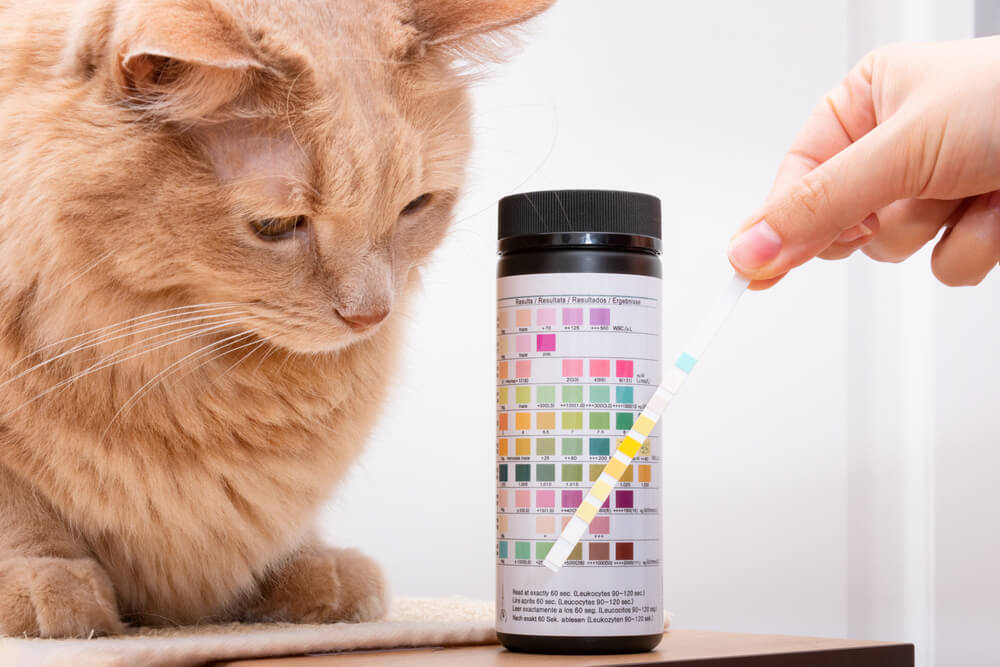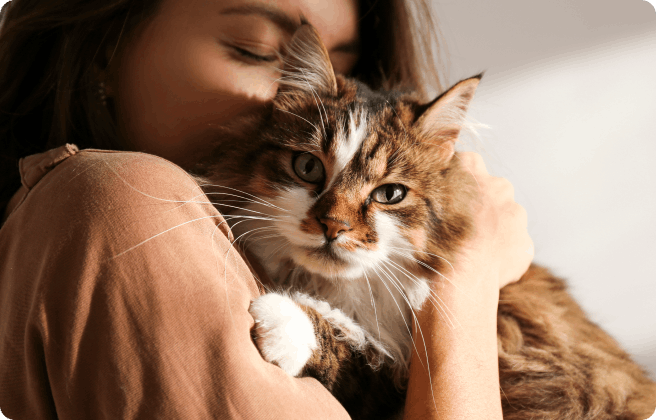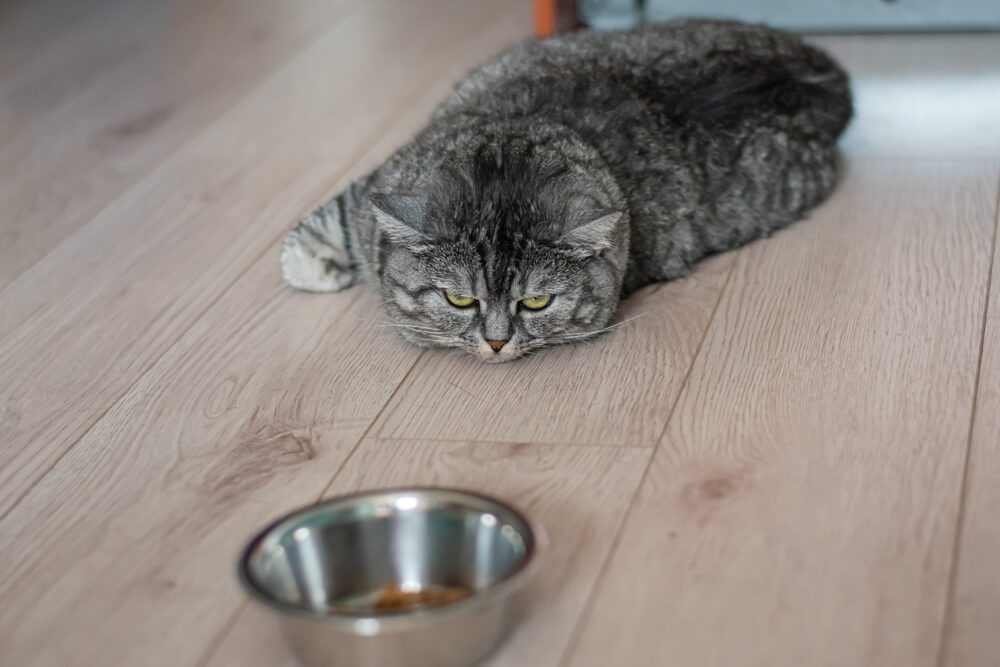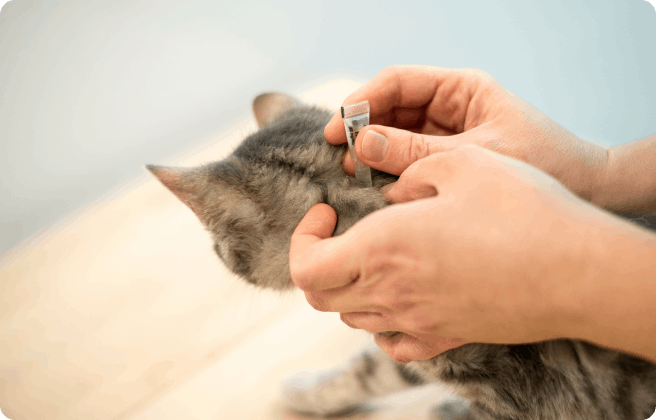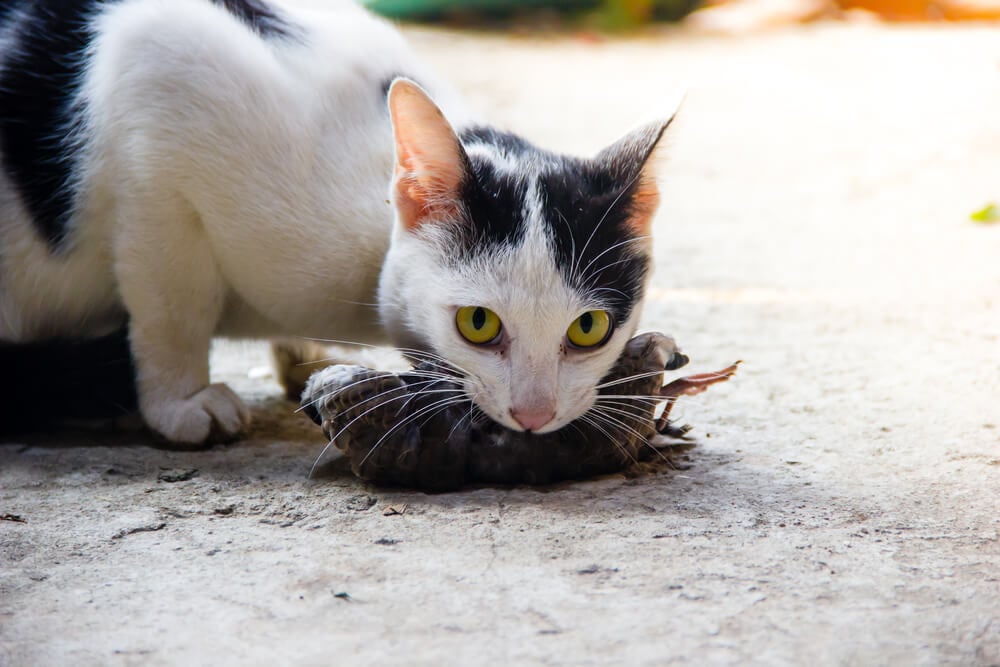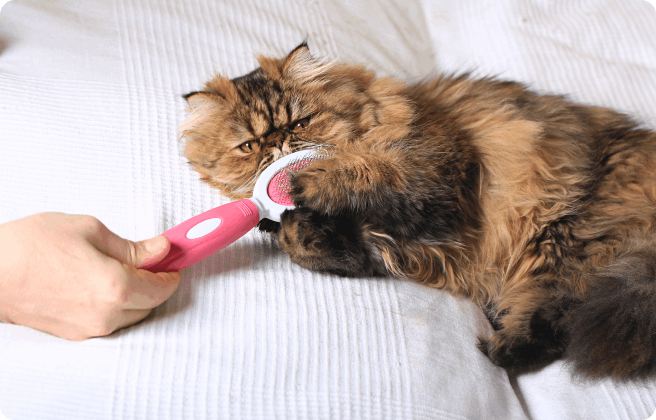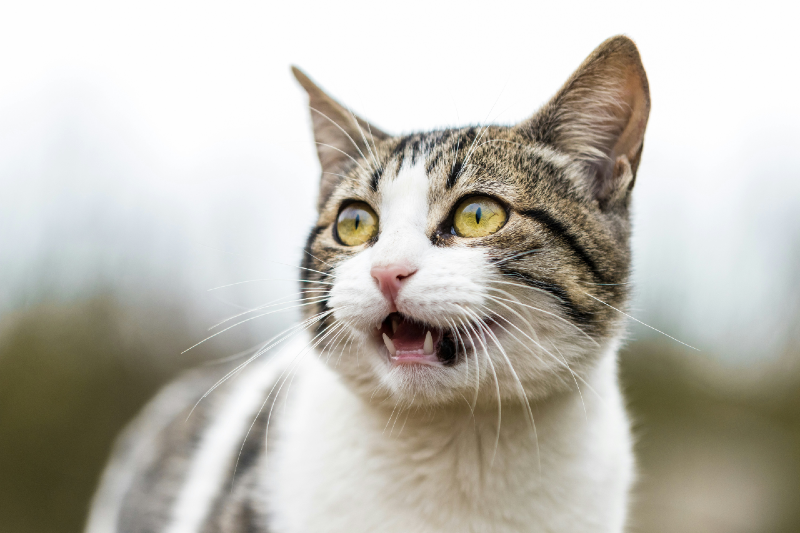
If your cat is distressed, chances are you might be too.
But even the most observant of cat parents might have taken a while to realize their cat is distressed in the first place.
This is because it’s not easy to spot the signs of distress in a cat and often these signs can get confused with symptoms related to other issues.
But as you’ll learn, it’s crucial to be able to decipher the ways your cat shows distress, as if the problem isn’t dealt with, it could lead to health issues including hair loss, gastrointestinal distress, changes to appetite and disrupted toilet habits.
With that in mind, we’ve summarized some of the main ways your cat might be indicating that they’re distressed, and if you spot any of the signs, or are worried your cat’s distressed, you should take your cat to your vet so they can examine and diagnose the issue.
- Increased vocalization
The noises your cat makes can give a strong indication as to their current level of distress. If you find your cat is meowing more often than usual, or is yowling or hissing, it may be a sign they’re distressed.
- Hiding
If your cat disappears for longer periods than normal, it could be a sign they’re feeling stressed about something. By retreating to their favorite space away from other people and animals, it might make them feel more secure and safe. Most cats like to do this on a regular basis, but if your cat’s disappearing or hiding for longer than normal, it might be worth contacting your vet so they can diagnose the issue (if there is one).
- Increased aggression
If your cat is usually as laidback as a horizontal recliner and you’ve found they’ve taken to uncharacteristic lashing out, scratching, biting or hissing at humans or other cats, it might be due to an increase in their stress levels. As with many other symptoms on this list, a visit to the vet is recommended, as increased aggression can be linked to other health issues.
- Change in appetite
One way many issues for cats make themselves visible to you as their cat parent is via their appetite. In this case, distress can often reveal itself via a reduction in appetite — your cat might begin to leave its meals or eat less.
- Over-grooming
Increased levels of distress can lead to your cat over-grooming. In the short-term, this can make them feel better, but if it continues to increase over a longer period of time it could lead to potential negative health effects, including skin irritation and soreness. For information on what to do in this situation, read Why does my cat groom excessively?
- Change in toileting
There may be clear signs your cat is having issues, and that is through their toilet habits. If they begin urinating outside their litter box, or have problems with diarrhea, stress may be one of the underlying causes.
How to reduce your cat’s distress
If you notice your cat exhibiting any of these signs, and your vet diagnoses stress as the reason, you’ll want to reduce their stress levels.
If that’s the case, read our suggestions on how to help in our article, How do I know if my cat is stressed?, which examines some of the reasons that may be behind your cat’s distressed state, and suggests ways to help reduce the stress and improve their health.
We uphold the highest editorial standards when creating the authoritative content pet parents rely on and trust.
Every piece of clinical content on the Cat Food Advisor is reviewed by our certified Veterinary Advisory Board, which consists of licensed veterinarians and medically certified specialists.
Our reviews are completely independent; we are not paid by any pet food company to promote their products favorably. We do not accept money, gifts, samples or other incentives in exchange for special consideration. For more information see our Disclaimer & Disclosure page.




